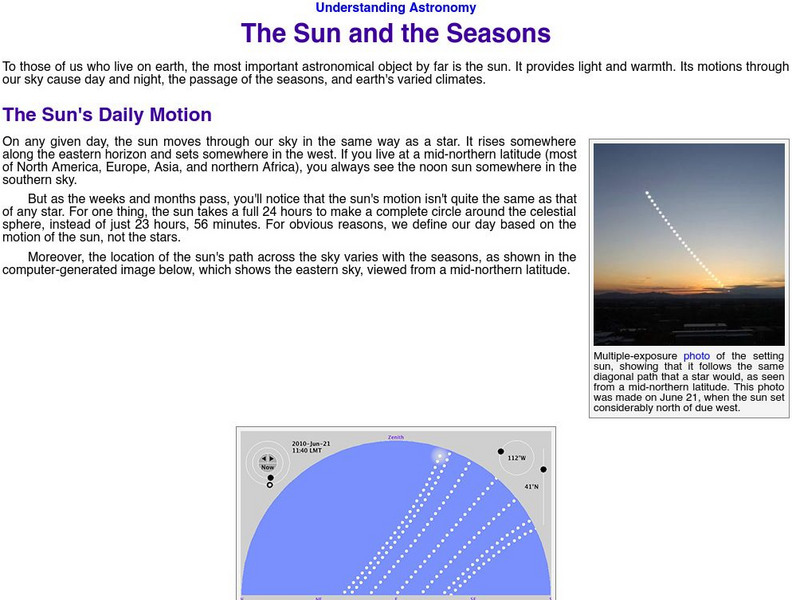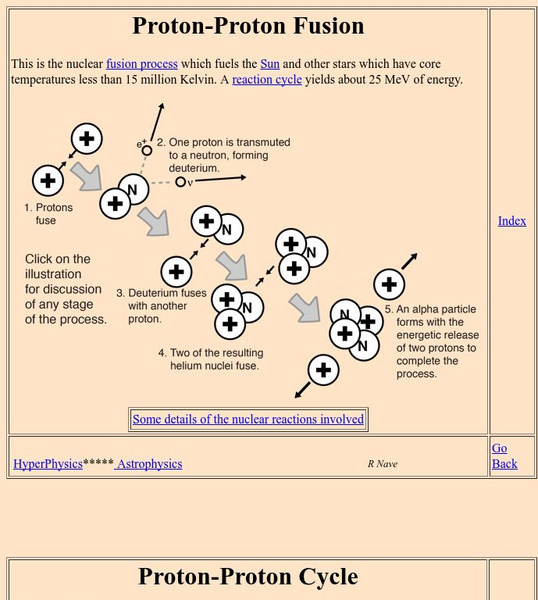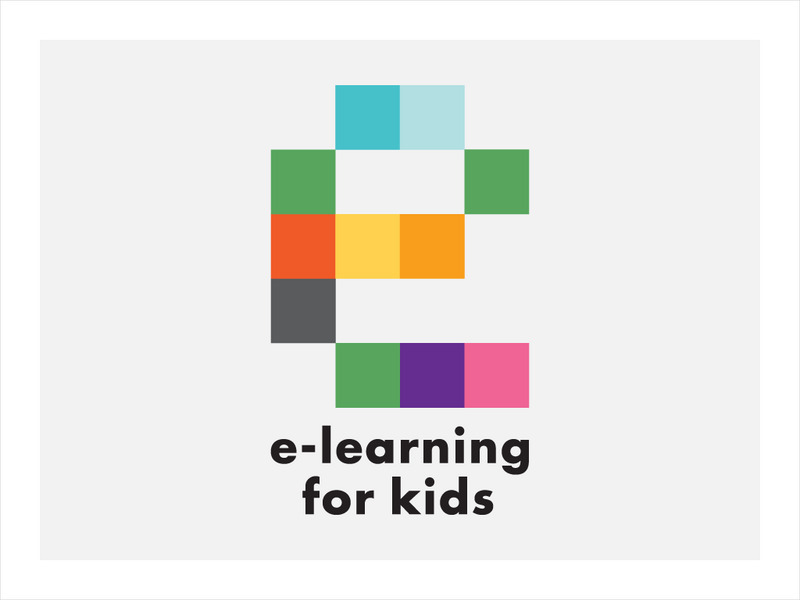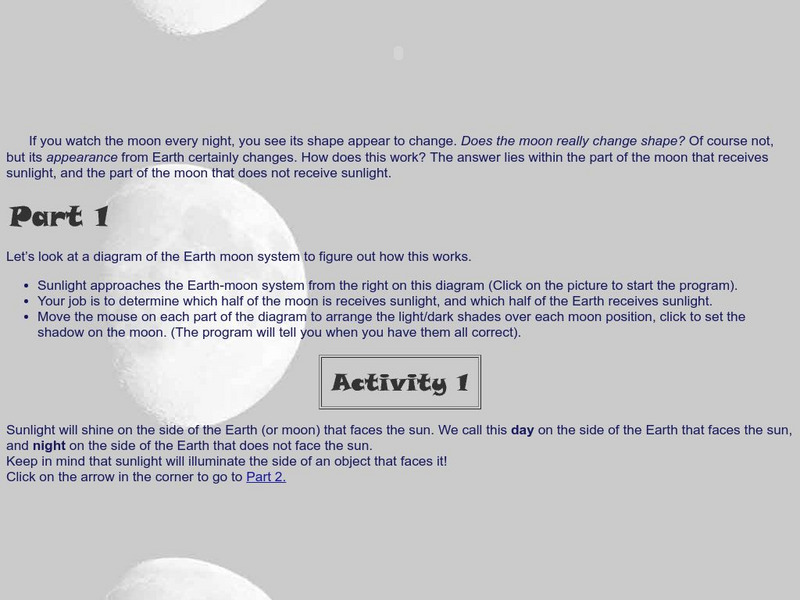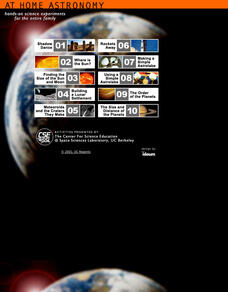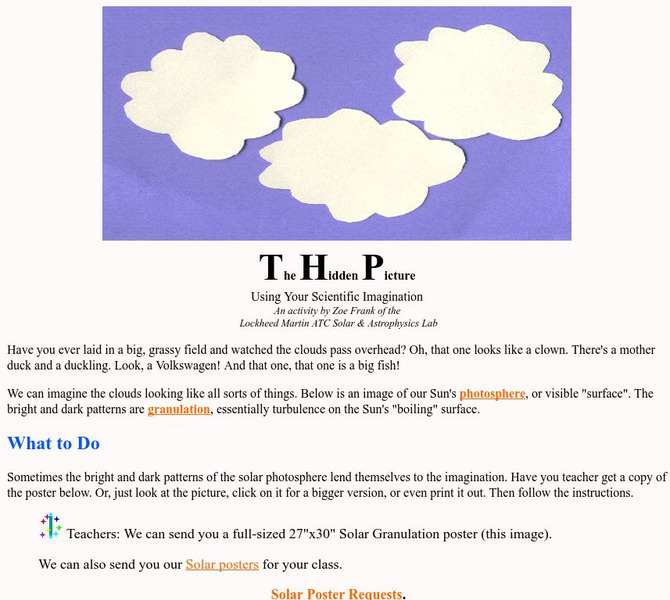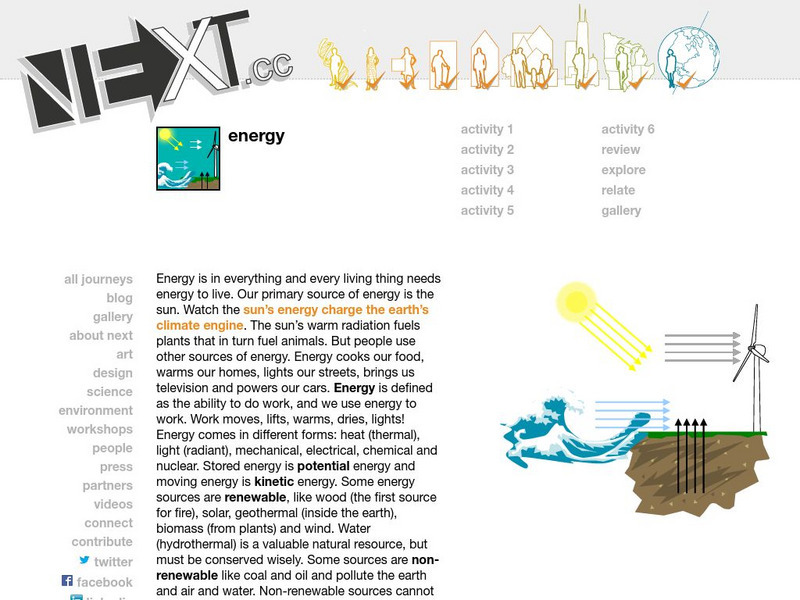Utah Education Network
Uen: Don't Marry the Mole!
Activities will demonstrate the power of solar energy.
NASA
Nasa: Solar System Exploration
Enter our solar system to interact with the planets, moons, asteroids, meteors, and more. Investigate with NASA scientists and explore missions related to space exploration. Read facts, compare statistics, look through resources, and...
Other
Weber State University: The Sun and the Seasons
To those of us who live on earth, the most important astronomical object by far is the sun. This article explains how the motion of the sun through our sky cause day and night, the passage of the seasons, and earth's varied climates.
NASA
Nasa: Sun: Overview: Our Star
A graphical representation of facts, figures, and information about our solar system's only star, the sun.
Other
Nasa: Helioviewer Project
Explore the sun with this solar data browser! The website allows students to see images of the sun for any amount of time or length. Students can take screen shots or make movies based on their observations. Also included is a slideshow...
BBC
Bb Ci Space: Solar System
Take a journey through the solar system with this interactive guide. Includes planetary history, "travel information," "tourist highlights," and video clips. Games and quizzes include a Solar System jigsaw that prompts the student to...
Utah Education Network
Uen: Managing Heat
Understand the role of the sun as the source of heat and light for living things on earth.
Utah Education Network
Uen: Trb 3:1 Investigation 5 Making a Sundial
Make a sundial and learn how to use it.
University Corporation for Atmospheric Research
Ucar: The Sun Earth Connection: Exploring the Dynamic Nature of the Sun
The unit contains lessons and a presentation that allow students to explore the Sun through images and investigate how magnetism from the Sun interacts with the Earth's magnetic field during space weather events.
Concord Consortium
Concord Consortium: Stem Resources: Solar Oven
Use the sun's energy to cook an egg? Design, build and test a solar oven. Activity gives a procedure to build oven as well as questions to answer. Questions can be saved and graded by instructor.
NASA
Nasa: World Book at Nasa: Sun
World Book Encyclopedia article, hosted by NASA, covers key details about the sun, incuding size, composition, radiations, rotation, vibration, magnetic fields, zones of the sun, solar wind, sun spots, and related topics.
Exploratorium
Exploratorium: Solar Max 2000
Examines the solar maximum cycle that occurred in the year 2000. Describes the characteristics of sunspots, solar flares, and coronal mass ejections, using video, photographs, news reports, and similar resources.
Georgia State University
Georgia State University: Hyper Physics: Proton Proton Fusion
A look at the reaction that fuels the Sun with this diagram of the nuclear fusion process.
Carnegie Mellon University
The Sun and Its Energy
The sun's energy is the primary source of energy for all surface phenomena and life on Earth. Combined with the material of the Earth (including the molecules held close by the Earth's gravitational force called the atmosphere), this...
E-learning for Kids
E Learning for Kids: Science: Rio De Janeiro: Day and Night: The Sun
Gabriella lives in Rio de Janeiro, Brazil. Help her learn more about the sun and identify the properties of the sun.
E-learning for Kids
E Learning for Kids: Science: Scotland: How Are Shadows Formed?
Join James, as he tries to make a dog appear on the wall by using only his hands. Find out how he does this.
University of Utah
University of Utah: Aspire: Lunar Phases
Two-part activity teaches about the phases of the moon.
Stanford University
Stanford University: Solar Flare Leaves Sun Quaking
A report on the discovery that solar flares produce seismic activity. Site also includes movies, images, background information, and other media reports concerning solar flares.
University of California
At Home Astronomy: Hands on Science Experiments for the Entire Family
A collection of ten hands-on science experiments for the entire family that will help you understand concepts in astronomy. Make an astrolabe, find the size of the sun and moon, build a lunar settlement, find out about meteoroids, shadow...
Stanford University
The Hidden Picture
What can you see in the sun's granules? This site includes links and further information for teachers on how to teach convection.
University of Massachusetts
University of Massachusetts: Aesop's Fables: "The Wind and the Sun"
Learn about the power of kindness while reading this illustrated fable "The Wind and the Sun." Then read the same story with different illustrations to provide a new point of view.
Nine Planets
The Eight Planets: Just for Kids
Here is a clear, simple picture of the solar system. Click on the names of the planets to learn more about each. Clicking on underlined terms takes you to more and more detailed scientific information.
Next.cc
Next: Energy
Multiple activities explore and explain the different forms of energy, the ability to do work.



